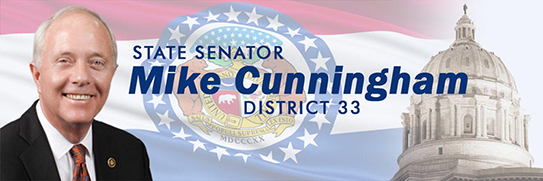 The biggest challenge the Legislature faces every year is how to responsibly spend taxpayers’ hard-earned money. The Missouri General Assembly only has one constitutional duty and that is to pass an on-time and balanced budget. In that budget, lawmakers must determine the best way to fund public schools, health care and transportation. However, creating a state budget that adequately funds state government is a difficult challenge. How do we fund those critical functions of state government while still taking care of those individuals who are the most vulnerable in our state?
The biggest challenge the Legislature faces every year is how to responsibly spend taxpayers’ hard-earned money. The Missouri General Assembly only has one constitutional duty and that is to pass an on-time and balanced budget. In that budget, lawmakers must determine the best way to fund public schools, health care and transportation. However, creating a state budget that adequately funds state government is a difficult challenge. How do we fund those critical functions of state government while still taking care of those individuals who are the most vulnerable in our state?
This year, the Senate’s version of the budget is a good reflection of the upper chambers commitment to the Show-Me State. Not only did the Senate approve a record amount of funding for K-12 education, but my colleagues and I also voted to restore $68 million in cuts made by the governor to higher education. Those funding decisions display our commitment to making sure Missouri has an educated, well-trained workforce ready for 21st century jobs. I am pleased to say, after much work, we also appropriated provider rate increases for in-home health care and provided an increase in the daily reimbursement rate for nursing homes. Last year, several programs that provide much needed funding for health care and prescriptions for our seniors suffered budget cuts. This is an issue I feel very passionately about. I spent almost a year chairing a committee with the intent of finding solutions to long-term care funding and increasing provider rates. I am grateful that the General Assembly has remedied that issue by restoring funding for several of these vital programs in the state’s 2019 operating budget. These budget increases show our commitment to the elderly and our state’s most vulnerable.
On Wednesday night, the Senate passed all 13 budget bills. For Fiscal Year 2019, the Senate voted to increase the Department of Elementary and Secondary Education’s (DESE) foundation formula by an additional $48 million. The Senate’s proposed budget also increases school transportation funding by $25 million. In the past few years, transportation funding has been cut or withheld (from about 70 percent to 17 percent of what is needed), which could eventually lead to a lawsuit. Transportation funding is important to our rural school districts, especially here in the 33rd Senatorial District. I have been working with area superintendents for several months and I took their concerns to my colleagues in the Senate. Because of the clear risk to our students across the state, we successfully voted to increase funding for school transportation.
The Senate also provided a $61.2 million increase to the amount the state pays for the Missouri Consolidated Health Care Plan (MCHCP), the state employee benefits plan. Less than two weeks ago, we learned that MCHCP was underfunded. If we do not put more money into the plan, we run the risk of massive premium increases. That comes at a cost to our state employees and cancels out the raises for those employees we had built into the budget.
While we tried to meet the needs of all state departments, ultimately we had to make several tough decisions. The work is not over yet. The Senate will still need to conference with the House of Representatives on most of the budget bills before they are sent to the governor for his signature.
The 2019 fiscal year begins on July 1. The General Assembly has until 6 p.m. on May 11, 2018, to approve the final budget and send it to the governor’s desk.
As always, I appreciate it when groups from around Missouri and from our community back home come to visit me at the Capitol. If you would like to arrange a time to come and visit me in Jefferson City, or if you ever have any questions, please don’t hesitate to contact my Capitol office at (573) 751-1882.
